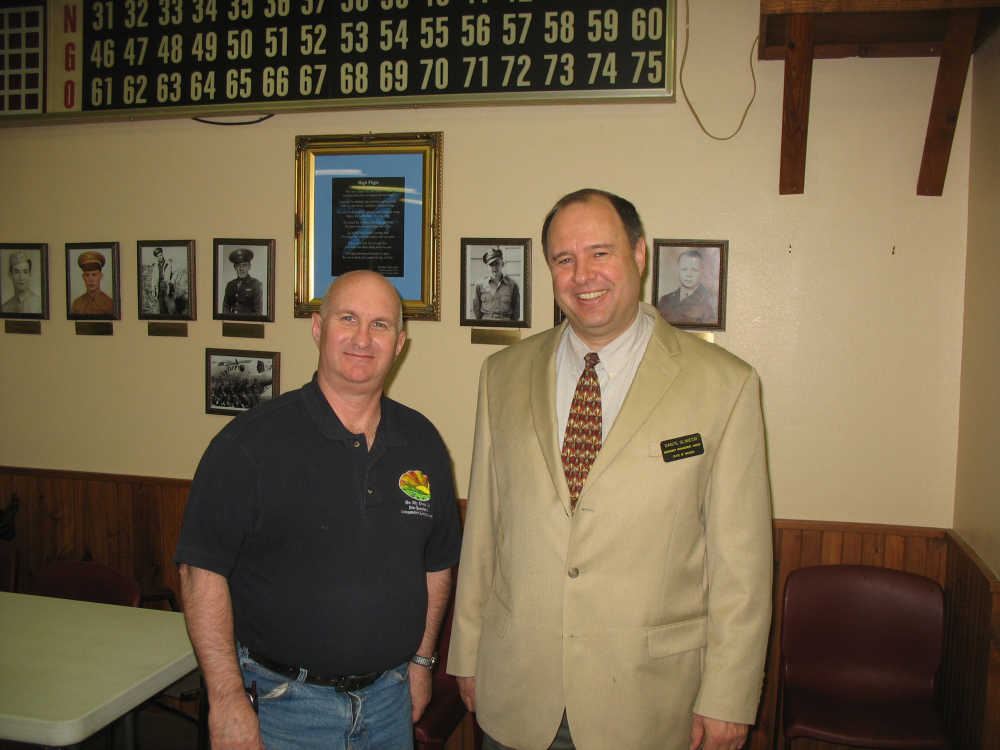Sharing resources: Group hears ideas on disaster recovery

Representatives of several organizations came together noon Wednesday for a Vernon County Share lunch meeting that doubled as a fund-raiser for the Vernon County Long-Term Recovery Committee, a group that will help various organizations to work together after a disaster to provide appropriate assistance to local victims. The lunch raised approximately $500 for the group.
Long-time area volunteer Pat Chambers led the meeting and introduced the speaker, Dante L. Gliniecki, the Statewide Volunteer Coordinator for the Missouri State Emergency Management Agency. Gleniecki started his talk off with a question -- and then provided the answer.
"What state agency provides relief after a disaster?" Gleniecki asked before providing his own answer as the crowd remained silent. "The reason you can't think of any is that there isn't one."
Gleniecki said the organizations gathered for the lunch had the resources that the community would need to draw on in an emergency and suggested they work together to form a COAD, Community Organizations Active in Disasters.
"This is the type of group that can form a COAD," Gleniecki said. "You've got a good Red Cross unit here and have for many years. They and the other organizations here have the resources that people can draw on in a disaster."
One of the first things the COAD needs to do is to form a long-term recovery committee.
"A long-term recovery committee could be an important factor in the recovery of the community after a disaster," Gleniecki said. "It's usually folks like yourselves that form the committee. You meet, you talk about cases and you see what you can do. All of your organizations could play a part in recovering from a disaster."
The committee would need to see what resources they had to work with. Gleniecki pointed out the Elks bingo hall could be pressed into service if needed.
"This facility, not that it has showers, but it would make a good shelter," Gleniecki said. "The committee should look around your community and locate shelters like this. Another need are special needs shelters. Some folks have medical conditions that require oxygen or whatever and they couldn't make it in a regular shelter."
In addition to a shelter where people who had such special needs could go is a registry that lists where the people with special needs live.
"It's something you don't like to talk about but there have been cases where someone with a medical condition has died in their home during a disaster because no one knew." Gleniecki said. "That's why a special needs registry is so important, so that you are aware of these folks."
Gleniecki praised the generosity of people and organizations and said that during a disaster SEMA receives all sorts of donations, including some that are rather odd.
"One company that always donates -- I can't remember their name right now --makes edible underwear. When their donation comes in it confuses our warehouse workers," Gleniecki joked. "They don't know whether to list it under "clothes" or "food."
